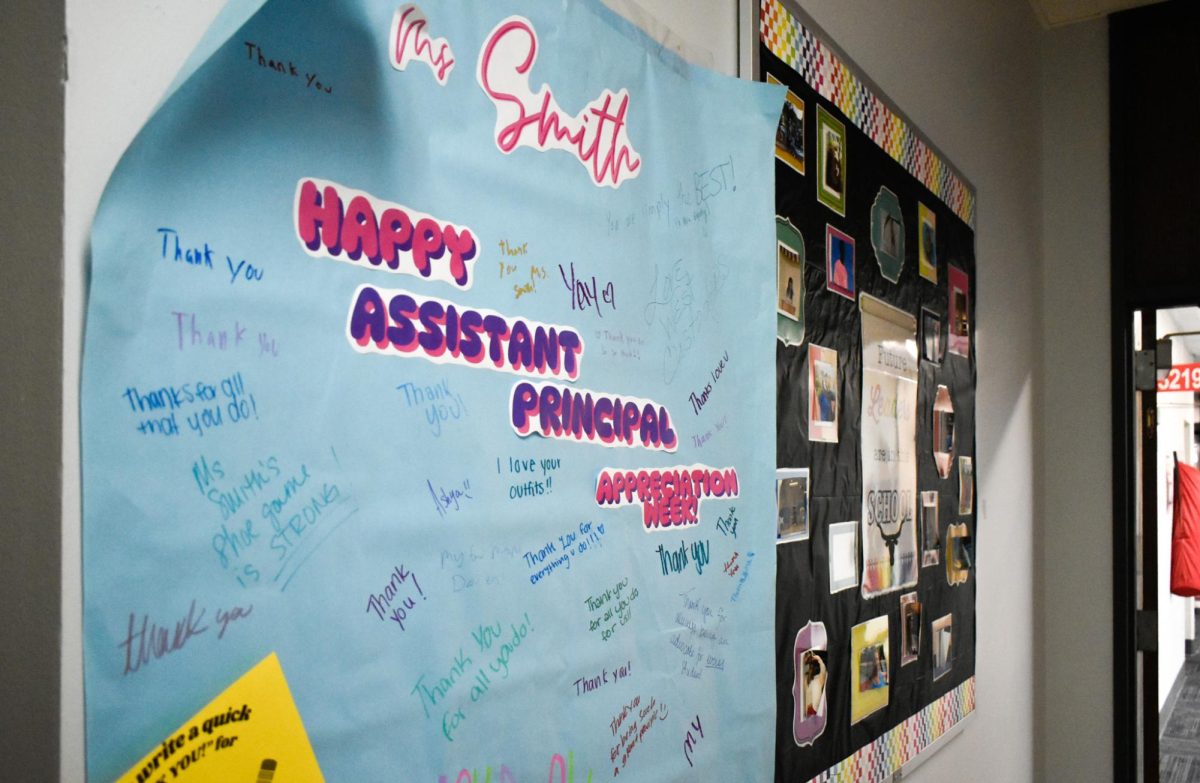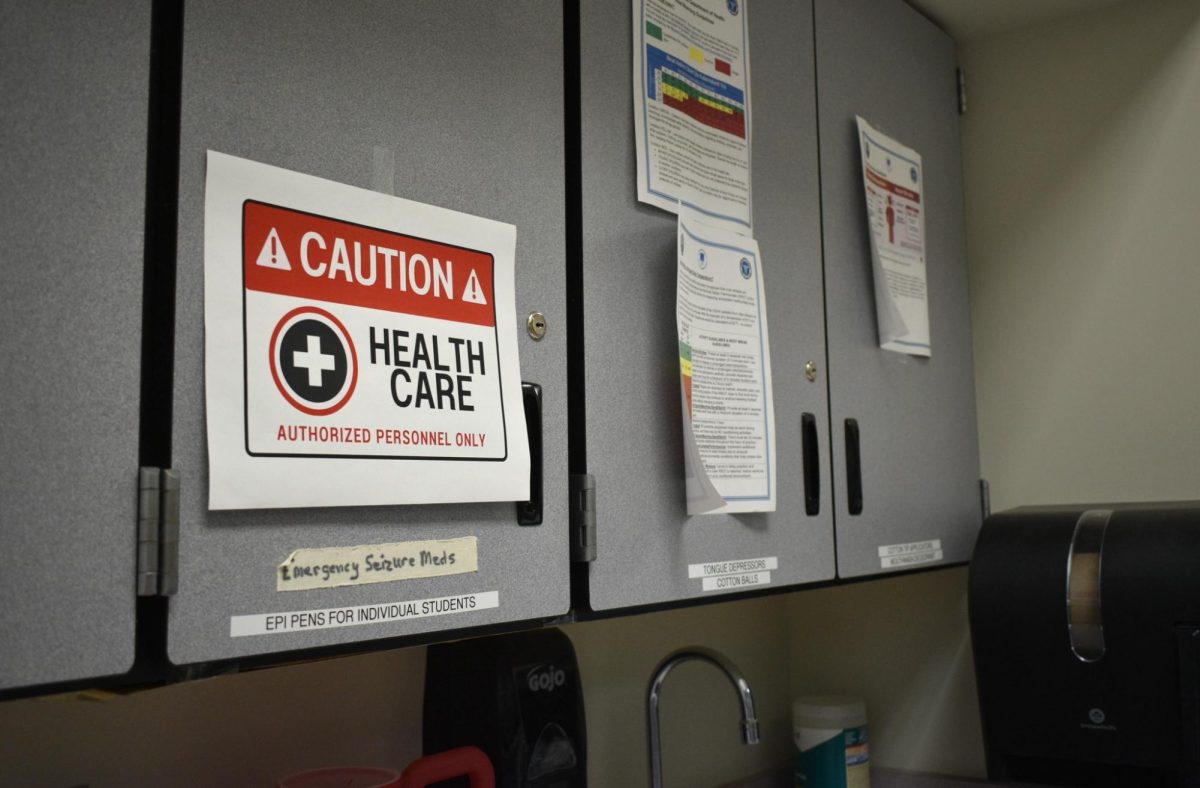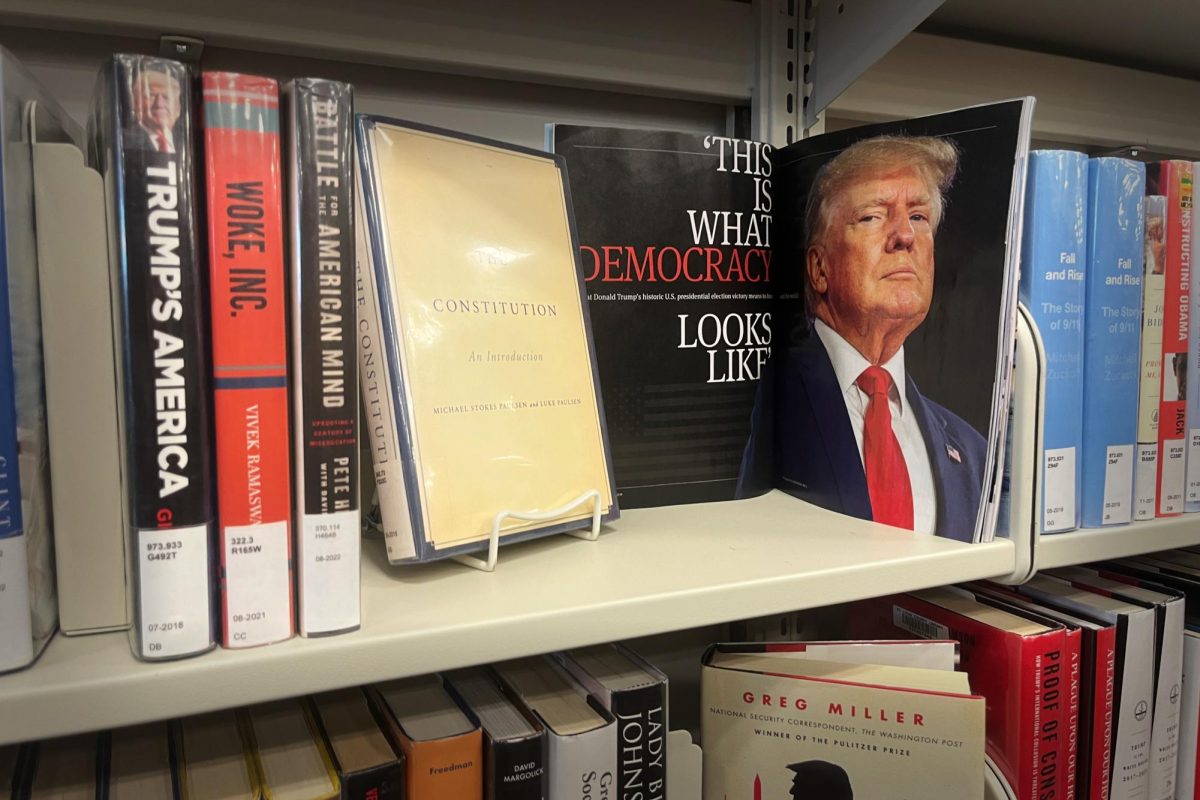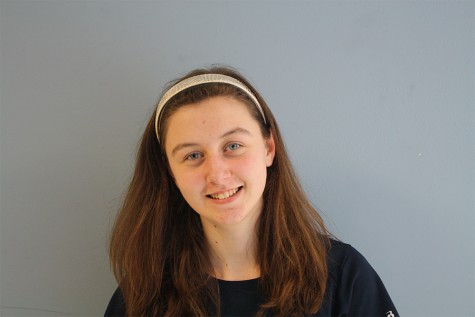Fever, runny nose, sore throat, bad cough. All these are symptoms of the measles, a disease that has been rapidly spreading throughout the United States.
Babies, children and even adults are at risk when it comes to the measles. And whoever gets it enjoys the effects of recovering for about 20 days, with the hope that no serious complications, like pneumonia or encephalitis, occur. All this can be prevented if they get their vaccines.
According to the Department of Public Health, an initial measles vaccine became available in 1963. Later, in 1968 an improved measles vaccine became available. The first vaccine was not effective, so any adults who were vaccinated before 1968 are not seeing the full benefits of the vaccination. However, anyone vaccinated after 1968 is now safe from the measles.
The measles vaccine is something that anyone can get, and the only risk of getting the vaccine is a possibility of a small allergic reaction.
However, according to the Center for Disease Control ,“The risk of MMR vaccine causing serious harm, or death, is extremely small. Getting MMR vaccine is much safer than getting measles, mumps or rubella.”
Seeing as how there is little to no risk to getting vaccinated, going to the doctor and being administered the vaccine should be a priority.
“I believe that [getting vaccinated] helps not only immunize people from getting any illnesses that can be life-threatening, and certainly debilitating, as well as not be a danger…to others,” Foreign Language Department Head Eileen Rodriguez-Kiser said. “It helps both them and the rest of the people around them to stay healthy.”
Vaccinations not only help keep people safe, but also prevent other people, who cannot get the vaccine, from catching the disease. For example, babies and special cases, such as people who are going through chemotherapy, or those who are immunodeficient, are not able to get the vaccine. That means that the only way that those people can stay safe is if the people around them are vaccinated.
“It’s one thing if you make a choice for yourself, that only affects you. But the problem with not vaccinating our children is that it affects the rest of society – it spreads disease. And that’s obviously not a good thing,” Rodriguez-Kiser said.
In order to keep everyone safe, everyone who can get the vaccine must, otherwise you run the risk of spreading the vaccine to more and more people.
Just one child that has the measles can spread the disease to hundreds of other people. With a disease that remains airborne for more than two hours, and has a 90 percent infectious rate, it needs to be dealt with seriously. And getting vaccinated is the way to deal with eliminating more serious complications.
“I believe that everyone should be vaccinated,” Rodriguez-Kiser said. “For the safety of everyone else, if not for the safety of their own family.”
Disclaimer: The views and opinions expressed in this article are those of the authors and do not necessarily reflect the official position of the Parkway School District.


![Dressed up as the varsity girls’ tennis coach Katelyn Arenos, senior Kate Johnson and junior Mireya David hand out candy at West High’s annual trunk or treat event. This year, the trunk or treat was moved inside as a result of adverse weather. “As a senior, I care less about Halloween now. Teachers will bring their kids and families [to West’s Trunk or Treat], but there were fewer [this year] because they just thought it was canceled [due to the] rain. [With] Halloween, I think you care less the older you get,” Johnson said.](https://pwestpathfinder.com/wp-content/uploads/2025/10/DSC00892-1-1200x800.jpg)
![Leaning on the podium, superintendent Melissa Schneider speaks to Parkway journalism students during a press conference. Schneider joined Parkway in July after working in the Thompson School District in Colorado. “My plan [to bond with students] is to get things on my calendar as much as possible. For example, being in [classes] is very special to me. I am trying to be opportunistic [meeting] kids [and] being in [the school] buildings. I have all the sports schedules and the fine arts schedules on my calendar, so that when I'm available, I can get to them,” Schneider said.](https://pwestpathfinder.com/wp-content/uploads/2025/09/IMG_5425-1200x943.jpeg)


![Red, white and blue, the American flag holds the values of our democracy. The fight that we once endured has returned, as student journalists and senior correspondents across the country are losing their voices due to government control. “[Are] the White House and [the] government limiting free speech [and] freedom of the press? Yes [they are],” chief communications officer of the Parkway School District and former journalist Elisa Tomich said.](https://pwestpathfinder.com/wp-content/uploads/2025/03/Untitled-design-14.jpg)
![A board in the Parkway West counseling department displays pennants of selective universities. With a wide range of students interested in attending, it’s important that these schools have clear priorities when deciding who to admit. “[Washington University] had the major that I wanted, psychology, philosophy, neuroscience. That's a holistic study of the brain, and [WashU is] the only college in the world that offers that. That's the main reason I wanted to go; I got into that program,” senior Dima Layth said.](https://pwestpathfinder.com/wp-content/uploads/2025/02/Flag-1.png)

![Within the U.S., the busiest shopping period of the year is Cyber Week, the time from Thanksgiving through Black Friday and Cyber Monday. This year, shoppers spent $13.3 billion on Cyber Monday, which is a 7.3% year-over-year increase from 2023. “When I was younger, I would always be out with my mom getting Christmas gifts or just shopping in general. Now, as she has gotten older, I've noticed [that almost] every day, I'll open the front door and there's three packages that my mom has ordered. Part of that is she just doesn't always have the time to go to a store for 30 minutes to an hour, but the other part is when she gets bored, she has easy access to [shopping],” junior Grace Garetson said.](https://pwestpathfinder.com/wp-content/uploads/2024/12/DSC_0249.JPG-1200x801.jpg)

![Senior Sally Peters stands in the history hallway, contemplating her choices in the 2024 United States and Missouri elections on Nov. 5. As a member of Diplomacy Club, Peters has discussed key candidates and issues in contemporary American politics. “[As students], we're starting to become adults. We're realizing how much the policies that are enforced and the laws that make it through the House and Senate are starting to affect us. [Opportunities such as] AP [U.S.Government] and Diplomacy Club [make elections feel] a lot more real,” Diplomacy Club vice president and senior Nidhisha Pejathaya said.](https://pwestpathfinder.com/wp-content/uploads/2024/10/Flag-1-1.png)
